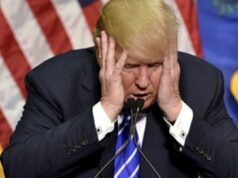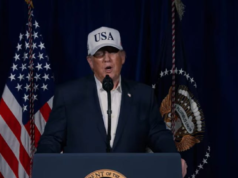A recent investigation by The Washington Post, just before the election, has revealed new details about a previously unknown federal probe into whether Egypt’s President Abdel Fattah El-Sisi attempted to funnel $10 million into Donald Trump’s 2016 presidential campaign.
This investigation, which remained undisclosed for over three years, aimed to determine if a $10 million donation made by Trump to his campaign shortly before the election was actually financed by the Egyptian government.
This is the same agency that ignored the Biden crime family.
The investigation began in 2017 based on classified U.S. intelligence suggesting Sisi’s intention to financially support Trump’s campaign. In early 2019, federal investigators learned about a significant cash withdrawal from the National Bank of Egypt on January 15, 2017, just five days before Trump became president.
The withdrawal involved an organization called the Research and Studies Center requesting $9,998,000 in cash. Bank employees assembled the money in $100 bills, placed it in two large bags, and four men later collected it.
The inquiry began during Trump’s presidency and involved Special Counsel Robert Mueller. Mueller’s team investigated various aspects, including a secretive court battle to obtain records from the Egyptian bank, which ultimately reached the Supreme Court.
The Washington Post reported:
The Post pieced together the court fight using records that were later released with redactions, other documents that remain secret, and interviews with people with knowledge of the case.
The legal fight, which led to the mysterious closing of part of the federal courthouse in D.C. in December of that year, wound its way to the Supreme Court as each side battled over whether the state-owned foreign bank could be compelled to produce evidence for a domestic U.S. criminal probe. In its final plea to the high court to hear the case, the bank warned that if it had to turn over records, it would “wreak havoc on American foreign policy — possibly alienating U.S. allies, undermining diplomatic efforts and inviting reciprocal treatment.”
The high court denied the bank’s request, but still the bank did not comply. By mid-January 2019, the bank had begun accruing contempt fines of $50,000 a day imposed by Beryl Howell, chief judge of the U.S. District Court, for failing to turn over the records.
By early February 2019, the bank relented and delivered almost 1,000 pages, including versions of bank documents in Arabic and English.
Those bank records contained one especially tantalizing item: a short handwritten letter dated Jan. 15, 2017, in which an organization called the Research and Studies Center asked that the bank “kindly withdraw a sum of US $9,998,000” from its Heliopolis branch, located about seven miles from Cairo International Airport. According to the bank records, employees assembled the money that same day, entirely in U.S. $100 bills, put it in two large bags and kept it in the bank manager’s office until two men associated with the account and two others came and took away the cash.
Mueller’s team gathered prosecutors and agents to brief them on the newly obtained documents. To people in the room, the withdrawal seemed to bolster the classified intelligence and validate the decision to have had Mueller’s team investigate, according to people familiar with the discussions.
Despite obtaining nearly 1,000 documents from the bank, investigators could not conclusively determine the source of the funds, leading to a deadlock and the eventual closure of the case by U.S. Attorney Michael Sherwin.
A spokesman for Trump’s campaign dismissed the allegations as “Fake News” and blamed “Deep State Trump-haters and bad faith actors.”
“The investigation referenced found no wrongdoing and was closed,” spokesman Steven Cheung told WaPo. “None of the allegations or insinuations being reported on have any basis in fact. The Washington Post is consistently played for suckers by Deep State Trump-haters and bad faith actors peddling hoaxes and shams.”
An Egyptian government spokesman declined detailed comments but noted that the Justice Department closed the investigation without charges.
“It is inappropriate to comment or refer to rulings issued by the judiciary system or procedures and reports taken by Justice Departments” in other countries, wrote Ayman Walash, the director of the Egyptian government’s Foreign Press Center.









